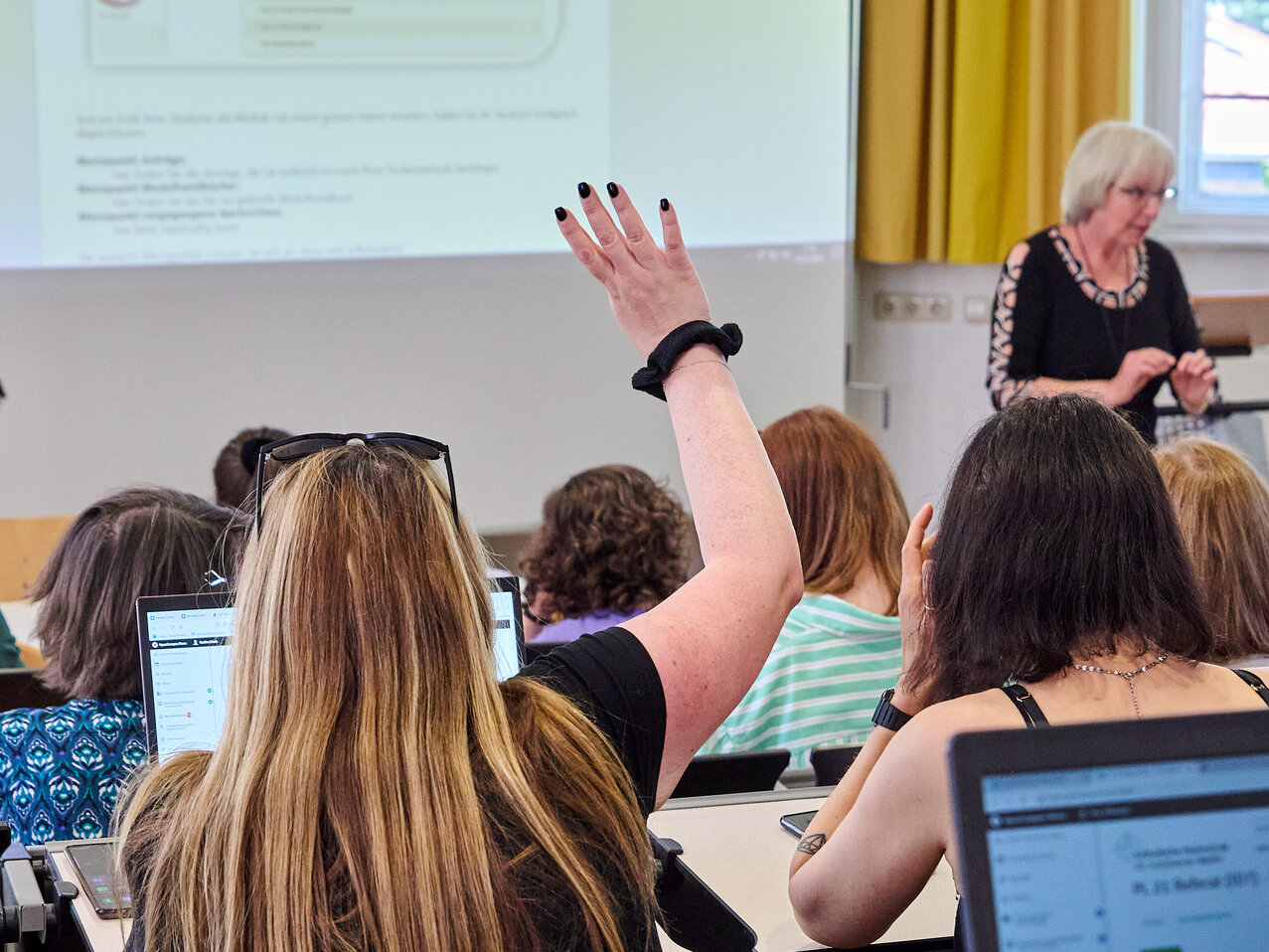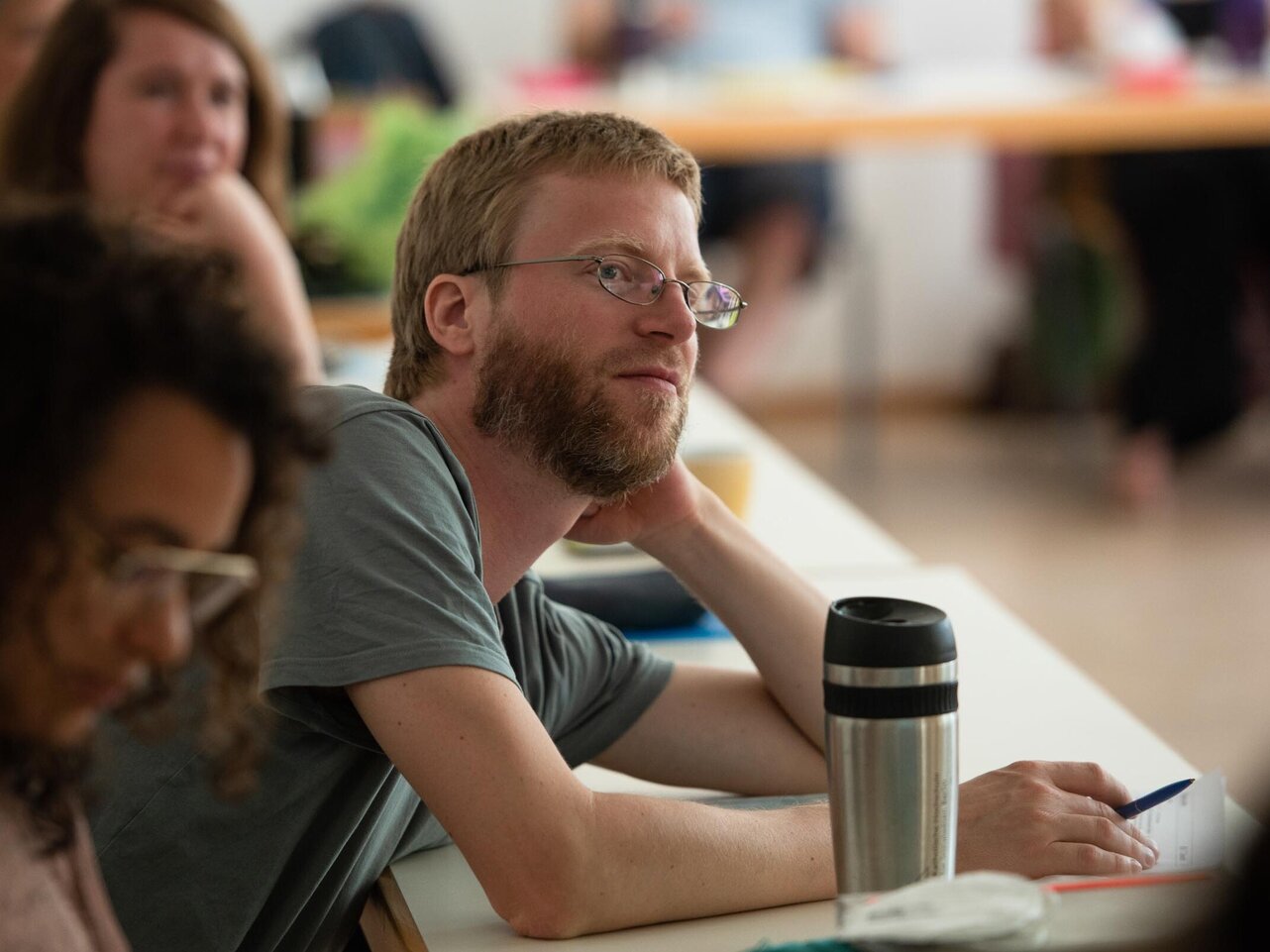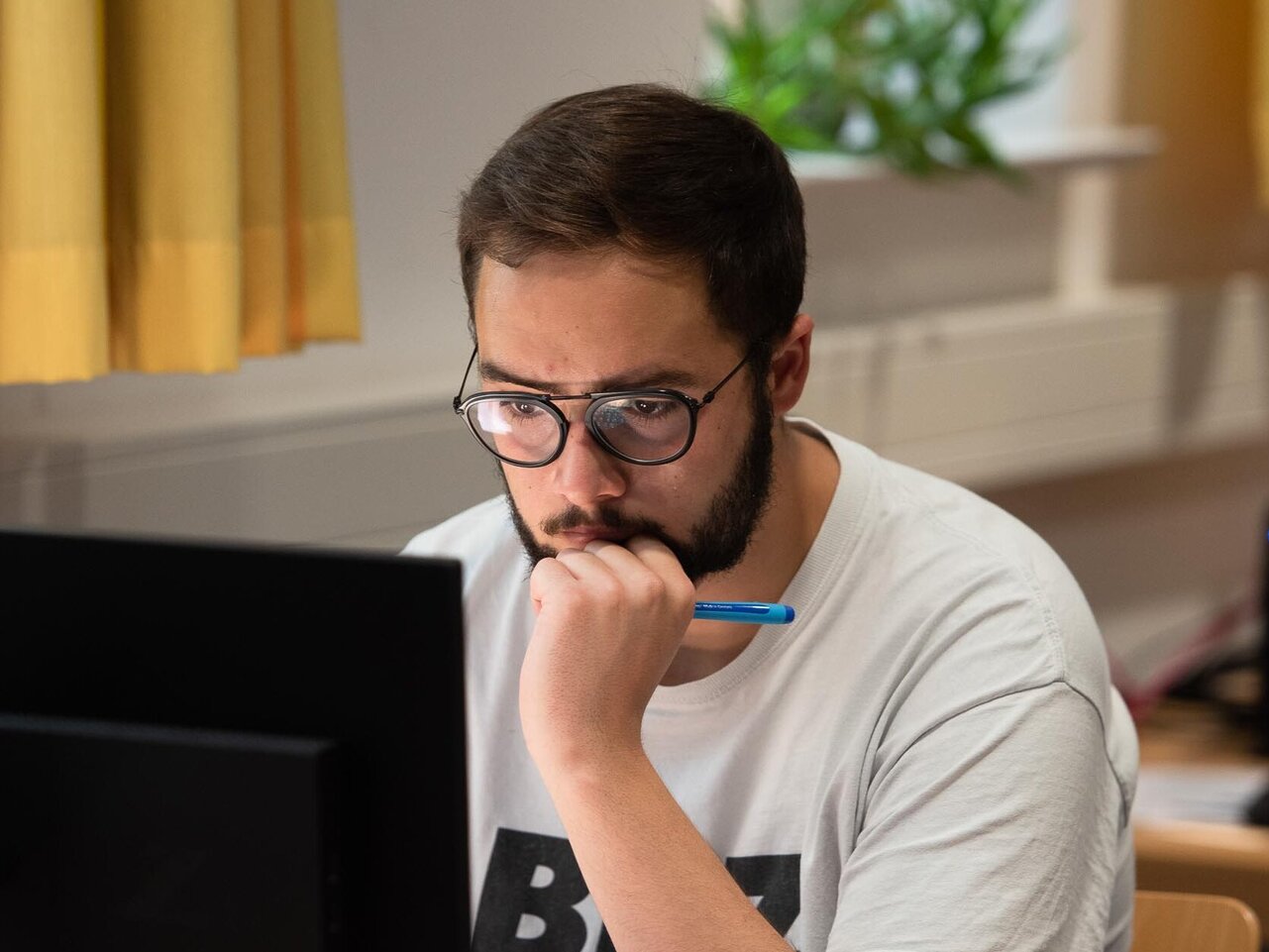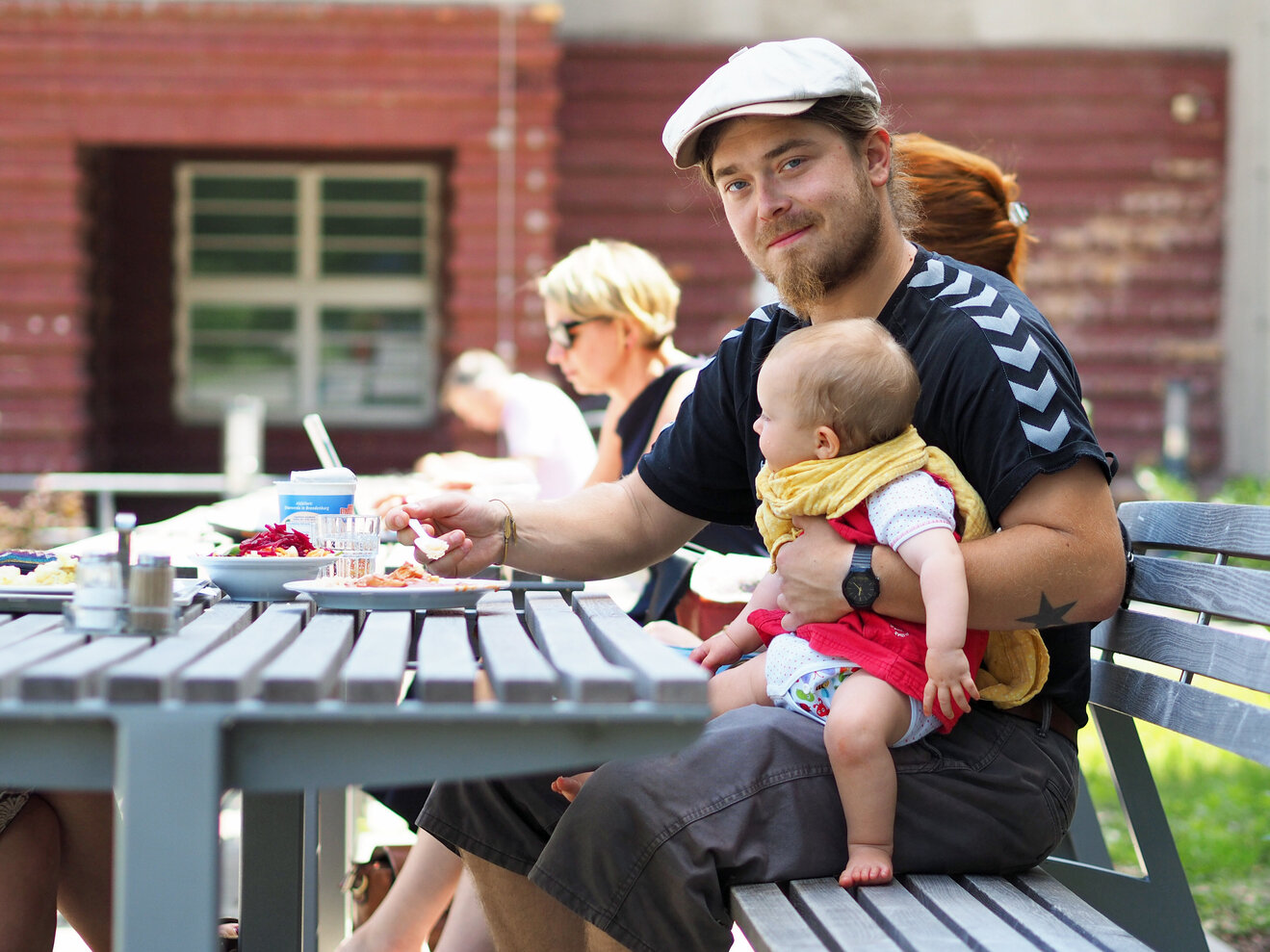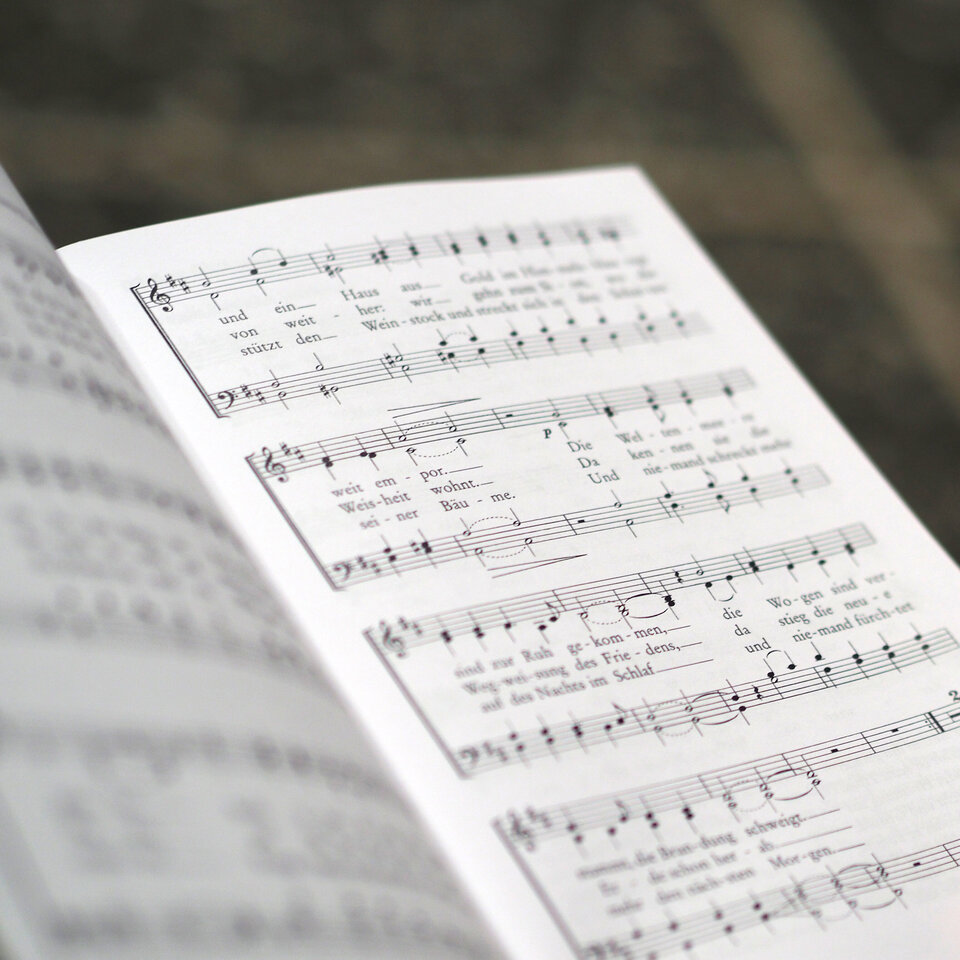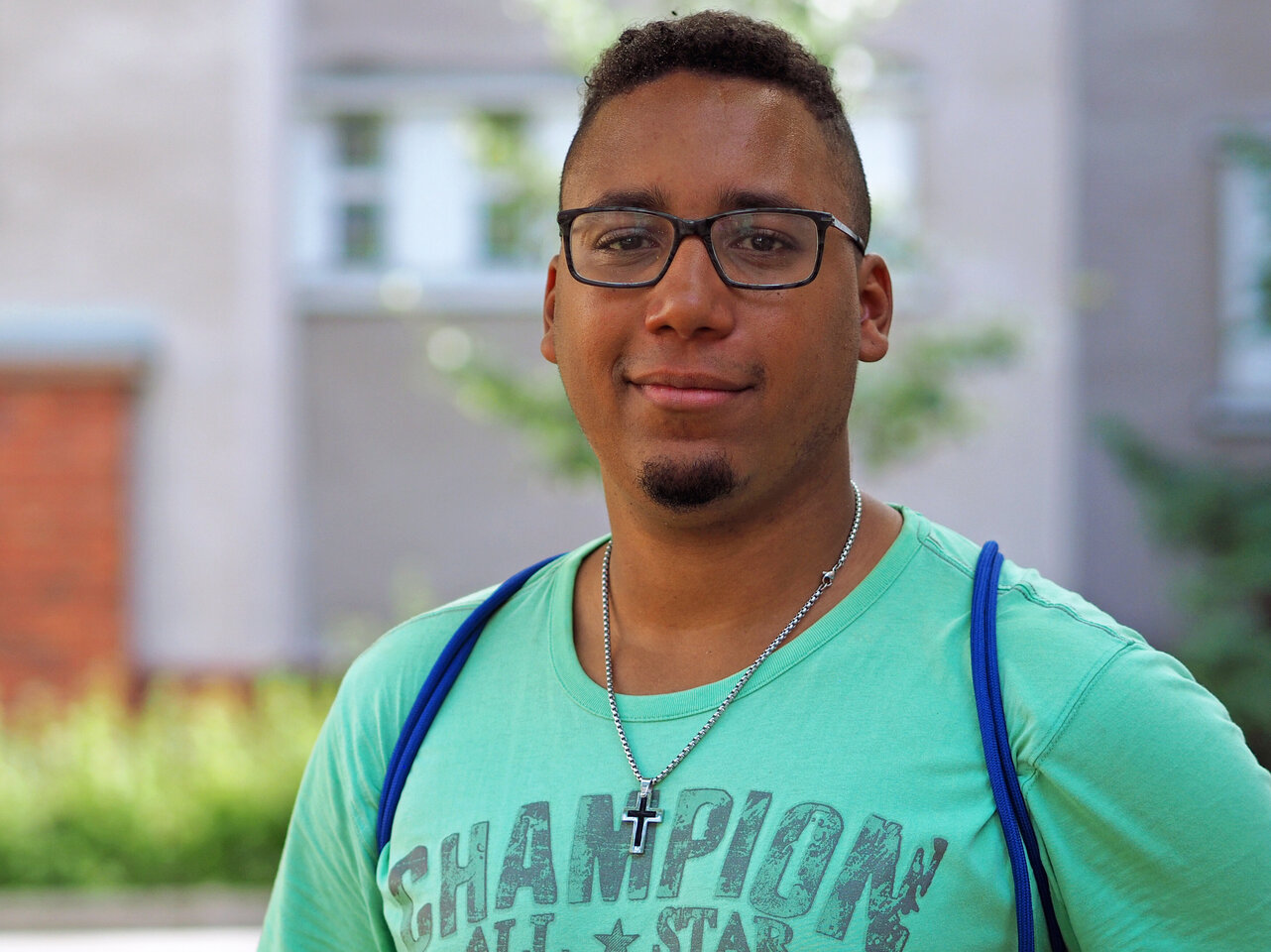Religion makes you think - Your religious education studies in Berlin
Would you like to work as a religious education teacher or would you like to work in pastoral ministry? Perhaps you are also interested in other social or educational fields of work or in church and political organisation work? Would you like to study in Berlin, the city of religious diversity? We offer you a skills-orientated degree course with the necessary specialist knowledge and methodological tools.
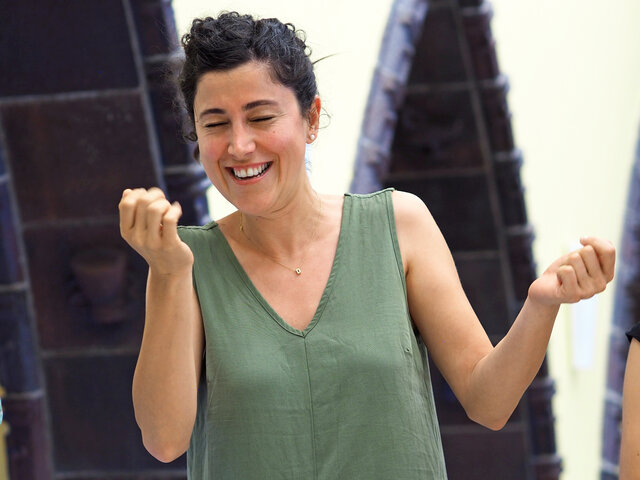
Study Religious Education at the KHSB
If you would like to study religious education in Berlin, the KHSB is the right place for you: at our university, you will benefit from a perfect mix of theory and practice. You will acquire the latest academic knowledge in theology, religious education and related social science fields.
Equipped with this knowledge, you will gain valuable practical professional experience during your studies. This will enable you to critically reflect on and further develop both the diverse professional fields and the academic discipline of religious education. As a religious educator, you will make an important contribution to society in favour of solidarity.
Dealing with the methods and content of the theological subjects enables competent religious education work in schools and pastoral care. The degree programme offers you the opportunity to reflect on and develop your own attitude in all study phases. Excursions and practical learning in places of interreligious and ideological dialogue enable you to learn through encounters.
The aim is to strengthen personal competences and expand the ability to perceive. In addition, the willingness to recognise "signs of the times" in unexpected places, to interpret them as relevant for changes in church and social activity and to incorporate them into options for action should be encouraged.
Here you can get an overview of selected contents of the Religious Education degree programme over the course of the semester. We show you the study areas that are covered in the course of the modularised study programme. Detailed information on the specific teaching and learning content of each semester can be found in the module handbook, which you can find under "Organisational matters" below.
Special features
Arriving at university
At the beginning of the degree programme, we accompany you in a usually small group of students on your way into studying religious education. Together, we ensure that we are familiar with the relevant academic work and research approaches. We take your ideas and questions on board and use them to develop possible focal points for selected modules and practical components. You will also get to know the fields of "religious education" and "pastoral ministry" in the first semester.
Reflecting responsibility
As a religious educator, you will take on an inspiring and responsible role that can have a lasting impact on people's lives. Your studies at the KHSB offer you the unique opportunity to combine theoretical knowledge with practical approaches, while at the same time reflecting on your own work and attitude.
We attach great importance to supporting you in internalising professional ethical values such as justice, solidarity and peace work and actively incorporating them into your future fields of work. With this foundation, you will not only be able to impart knowledge in your work with children, young people and adults, but also be a source of guidance and confidence.
Study flexibly
Study flexibly, family-friendly and alongside your job. Each semester includes one study day per week and two five-day study blocks in attendance, as well as two digital self-study courses.
Combine two degrees
The special opportunity: you can combine the Bachelor's degree programmes in Religious Education and Social Work and obtain two degrees in 10 semesters. If you have completed your degree in Social Work, you can therefore earn an additional Bachelor's degree in Religious Education in three semesters. Get in touch with us.
Support during the degree programme and other training phases
Those who complete the pastoral training accompanying their studies parallel to the Bachelor's degree programme in Religious Education within the
The Spiritual Mentoring programme at the KHSB will help you prepare for a career in the church. It offers and provides spiritual experience and spiritual guidance. The Spiritual Mentoring Programme supports students of religious education in developing and reflecting on their future role as employees of the church by creating a protected and confidential environment.
In this respect, spiritual mentoring helps you to develop a well-founded and responsible standpoint of faith and to communicate this clearly. At the same time, it supports you in further developing your personal spirituality. Prospective religious education teachers and community counsellors studying in Berlin register for the mentoring programme at the beginning of their studies. You will receive all the important information at the information event or at the first orientation meeting.
Programme-specific admission requirements
Before beginning the degree programme, a four-week school pedagogical or parish pastoral orientation internship must be completed. Adequate professional or practical experience can be recognised for this internship.
The practical work in the orientation internship can be carried out in all areas of religious education. Such areas of work are, for example
- Religious education at school: independent teaching, observation of religious education lessons.
- School pastoral care/school pastoral care: participation in school pastoral care events, counselling for pupils, end-of-school days, pastoral care support, school services; offers for teachers.
- Parish pastoral work: preparation and co-organisation of church services, lector or communion assistant services, collaboration in catechesis for adults, collaboration in children's and youth pastoral work, daycare pastoral work.
- Diaconia: Involvement in diaconically orientated working groups, experience in social work in the church sector, involvement in charitable projects in the social area.
- Committee and/or association work, involvement in parish committees (parish council, church council), involvement in associations of the Catholic Church, children's and youth association work.
In addition to the programme-specific requirements, the general
Expertise
With this degree programme, you will acquire the qualifications for a successful career in the field of religious education. Equipped with specialist, practical and personal skills, you can start your career straight after graduation.
After graduating, you will have
- academically sound knowledge of religious education and its theological canon of subjects (biblical theology, church history, systematic theology, practical theology, human and general sciences),
- the ability to view the role of religion and Christian practice in a multi-religious society from different perspectives. They are able to reflect on this theologically, anthropologically and interreligiously,
- a keen sense of the everyday practical and social challenges in the social spaces of our time,
- a strong professional identity and a sharpened, individual professional profile,
- a broad methodological knowledge and didactic repertoire,
- strong ecumenical and interreligious dialogue and discourse skills,
- essential key qualifications to shape communication and interaction processes with various stakeholders, target groups and organisations in society and politics in a targeted manner.
Fields of work
- Teacher of Catholic religion in the Archdiocese of Berlin
(grades 1-10), - Parish priest in the Archdiocese of Berlin,
- Parish pedagogical work with children, young people, adults, senior citizens,
- Educational specialist in daycare centres,
- Political association and committee work,
- Adult education,
- Child and youth education work.
Further qualification
The Bachelor of Arts degree paves the way for further qualification with a postgraduate Master's programme. With one of our Master's programmes, you can specialise further in your field, qualify for management positions and open up the path to a doctorate.
Contact persons
Are you interested in studying with us and have questions about applying, admission requirements, campus life, enrolment or starting your studies?
Get in touch with us! Paula Schwalm, Childhood Education student, and Ahmed Abdulhay, Social Work student, will be happy to help you as part of their student peer-to-peer counselling service.

